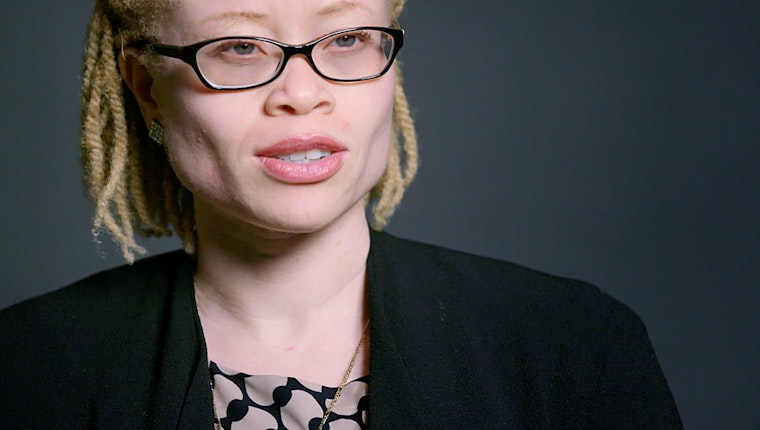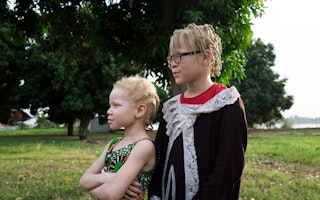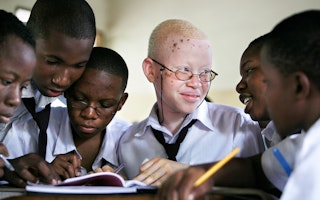Defending the Human Rights of People with Albinism
By Alison Hillman

In many parts of Africa, people with albinism face discrimination and violence, not just from society at large but sometimes even from their own families. Just because they look different, they are treated differently.
Some are excluded from education. Others are shunned by family and friends. And too many are targeted for kidnapping and attacks, the result of a heinous black market that prices and sells the body parts of persons with albinism to those who think—due to witchcraft beliefs—that such body parts, if used in potions and amulets, will bring them wealth and good luck.
The Office of the United Nations High Commissioner for Human Rights estimates that as many as 1 in 5,000 people in sub-Saharan Africa (and 1 in 20,000 people in Europe and North America) have albinism. In the past decade, there have been close to 700 attacks against persons with albinism in 28 countries across the region—and these are just the reported cases. Many cases go unreported due to the secrecy of witchcraft practices or the involvement of victims’ family, among other factors.
This is why we are working with allies across Africa to make the human rights of persons with albinism a continental priority for governments and civil society. In this video, we hear from some of the advocates leading the charge to assert the human rights of persons with albinism, change discriminatory attitudes and practices towards them, and fight for their community inclusion and participation—because in an open society, difference is valued and everyone belongs.

Until November 2021, Alison Hillman was a unit manager with the Open Society Human Rights Initiative.

